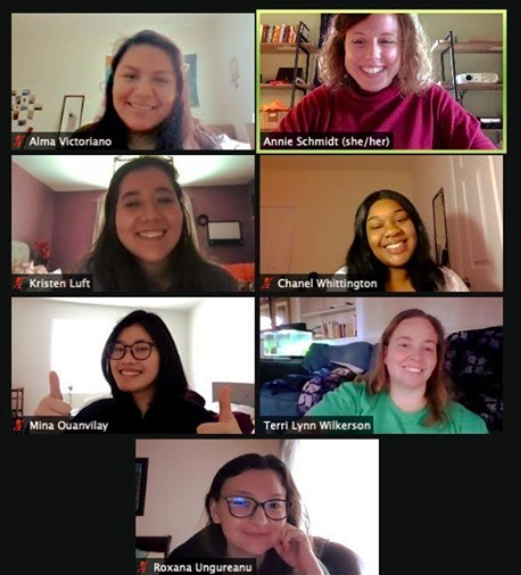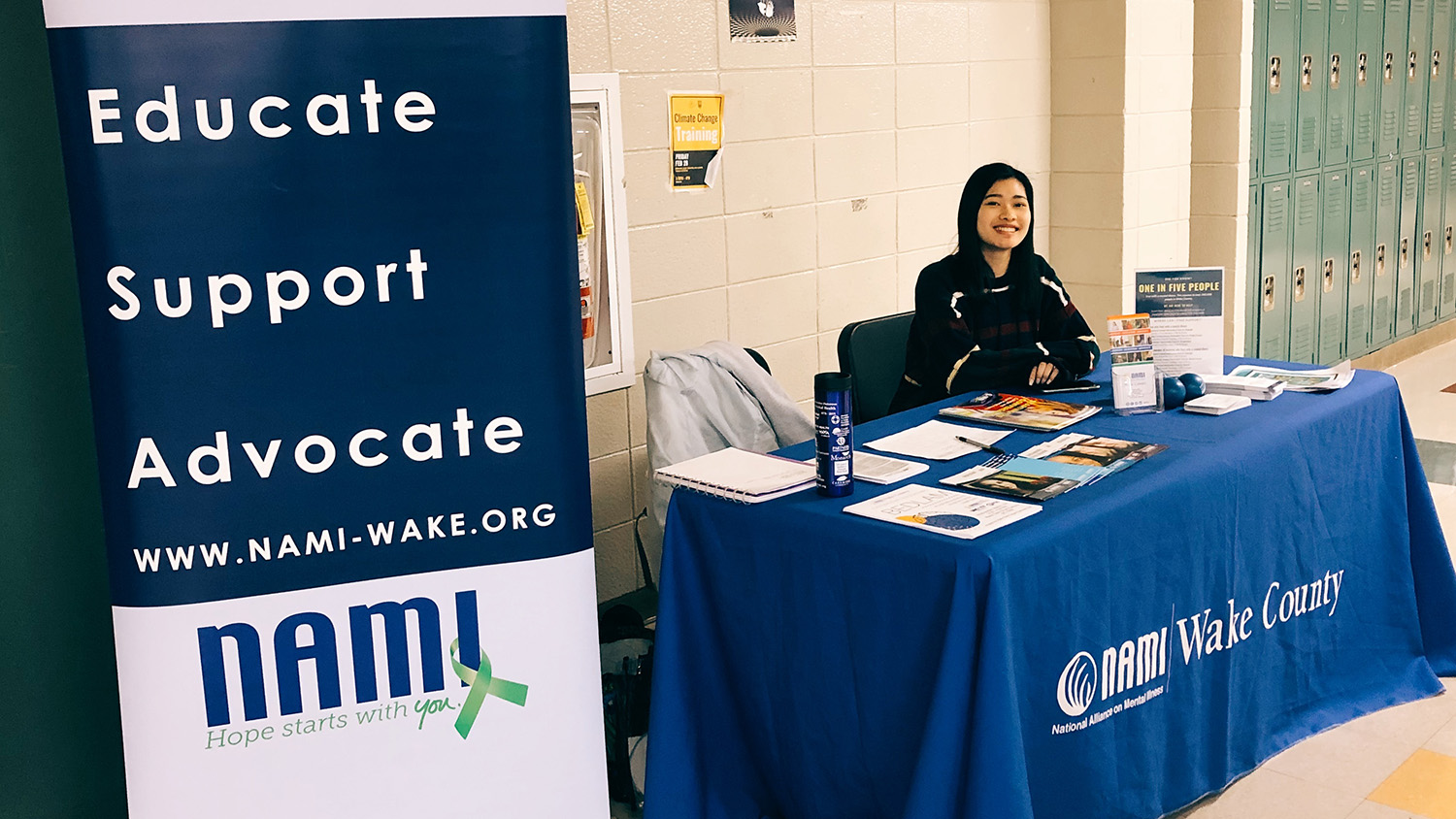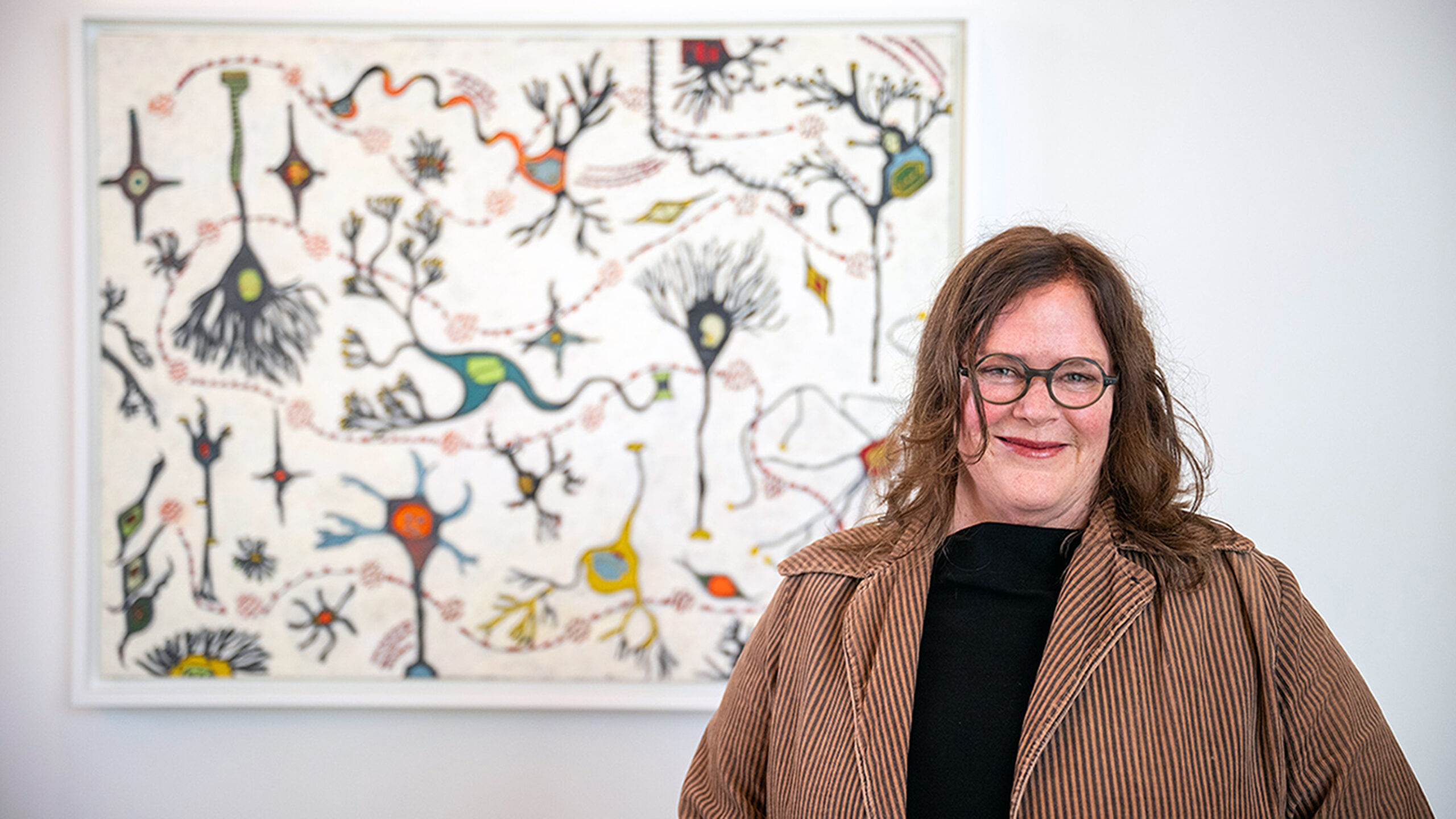Meet senior social work major Mina Ouanvilay, an intern at the Wake County affiliate of the National Alliance for Mental Illness.
Since 2019, she has been lending a voice to and advocating for people with mental health challenges – a subject that strikes a personal chord for Ouanvilay and her family.
We caught up with Ouanvilay to learn more about her ongoing internship, social work major and career aspirations.
Why did you major in social work?
I want to support the movement toward racial equity and mental health visibility. It’s also my perfect fit since there are no limits to what I can do with a social work degree — from working in schools and hospitals to rehabilitation centers and child care facilities.
I’m interested in refugee resettlement and school social work. My dad was a refugee in Thailand during the political reconstruction of Laos in the late 1980s, so I understand the difficulties families experience when adjusting to a new culture.
I saw my mom struggle with working full-time while learning English. My dad also talked about how a social services worker helped him enroll in high school and enrichment programs.
I hope to extend the same compassion to families impacted by events out of their control.
Why did you choose to do an internship at NAMI of Wake County?
Because of my parents’ upbringing and adverse experiences as immigrants and refugees, I always felt that we had to push ourselves to be functional and busy in order to support one another, so we all often hid behind a strong front. So, mental health was an issue in my household. Yet it remained invisible and considered taboo.
In college, I realized I never addressed my mental health in a healthy way. I also recognized I was not alone and through my internship, I could help others in their journey.
What are some of your primary responsibilities?
I started as a gratitude team member, keeping track of donor and member lists, acknowledging their contributions and getting to know their stories. Then I was a program support intern, designing educational events, restructuring volunteer systems, updating support groups and crafting engagement initiatives. This year and last, I continue to input data but also ensure the information in completed sections is accurate, moving from a data entry support intern to a data entry lead.
I have worn different hats within the organization, which allows me to be more well-rounded as a staff member. Moving forward I know I can definitely apply this to future roles.

What do you like most about the internship?
I like the freedom to choose the ways I support the nonprofit as well as the flexible hours and hands-on experience. I also met some amazing people who share similar interests in supporting those with mental health conditions.
What are the challenges?
Challenges include creative blanks and the frustrations that come with them. I have also learned to be patient with myself when that happens and allow myself to take inspiration from others.
How will the internship prepare you for your future?
It has provided abundant real-world experiences and helped me realize that in a helping profession, you don’t just help one individual, you help entire families or communities. I am prepared to bring an open mind and heart to those who need my services in the future.
What’s next for you?
Continue my internship, which serves as my practicum field placement and includes a weekly seminar. I will also work with the NAMI Wake County staff to provide resources to those in underserved communities, where mental health is not frequently addressed. I see a future in mental health and plan to use my degree to support children and refugees. I also hope to pursue a master’s degree in social work.
What advice would you give other students seeking an internship?
Go for it! Have an open mind and collaborate. You will learn much from the experience and meet many great people. Be kind to yourself and know your supervisor is there to help you!
Would you do it again?
YES! If I had not worked with NAMI Wake County, I wouldn’t have switched to social work my sophomore year. I’d like to think that the internship changed the trajectory of my life.
Note: Social Work majors have many opportunities to gain first-hand experience through high-impact practices, including self-guided internships. They also participate in a semester-long field practicum, supervised by a social work practitioner, during their senior year.
- Categories:



